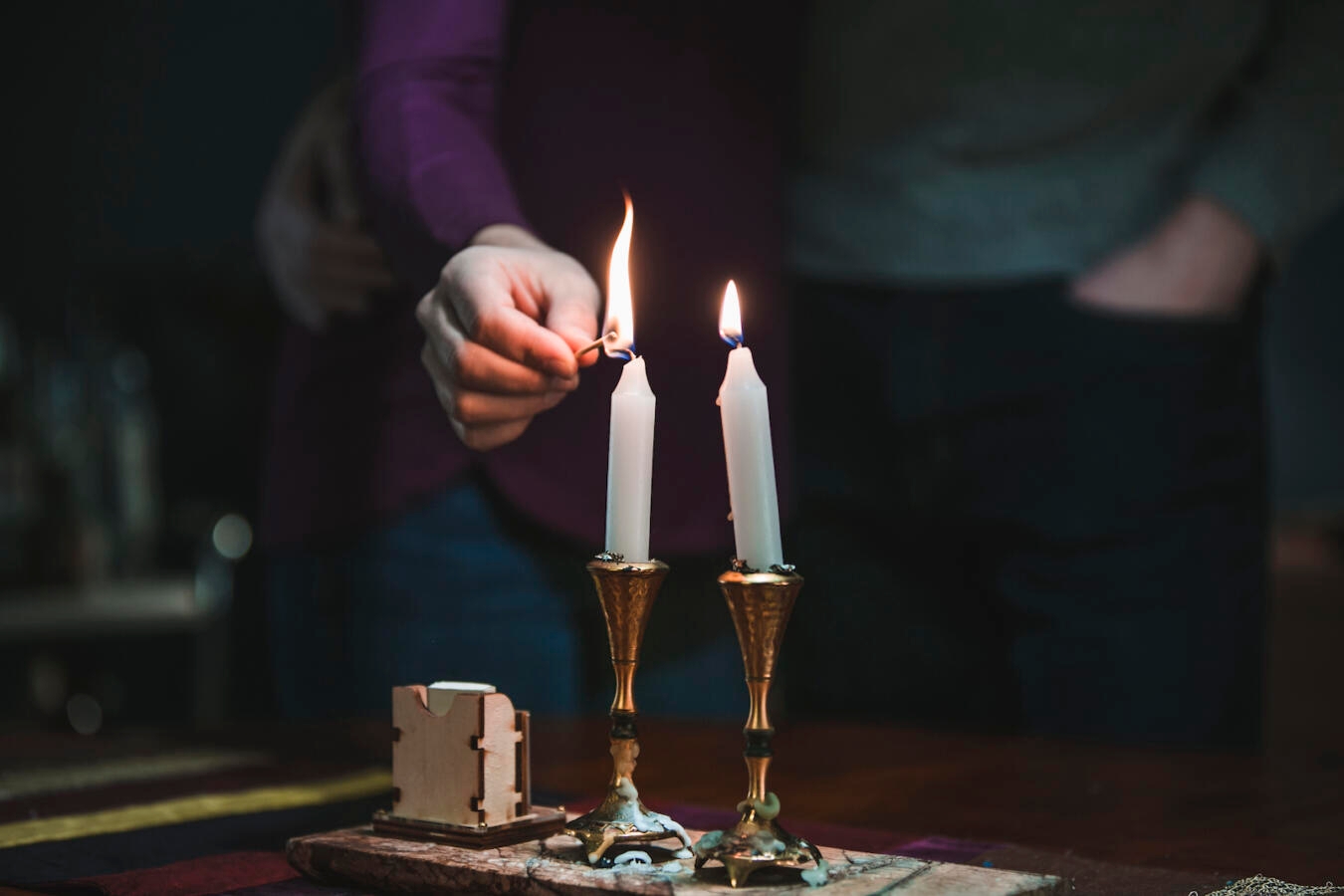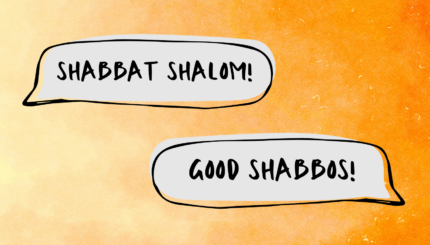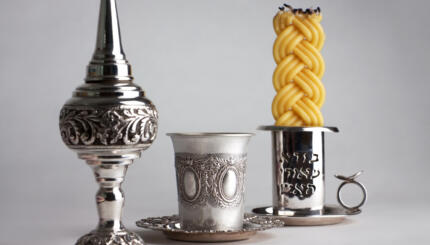Shabbat, the weekly Jewish day of rest, is so important to Jewish life and the rhythms of Jewish time that the phrase shomer Shabbat — literally, “keeper of Shabbat” — is often used as shorthand for an observant Jew. The basics of Shabbat are pretty straightforward — essentially, refraining from constructive labor and taking a much-deserved weekly respite — but some other facets of the weekly Jewish sabbath are less so. Here’s a few things about Shabbat you might not have known.
Angels come to our houses
According to the Jewish mystics, angels accompany worshippers home from the synagogue after Friday night prayers. This tradition is the reason for the singing of Shalom Aleichem, which welcomes angels into the home, prior to the Friday night Shabbat meal. Along with the angels, Shabbat is often compared to a bride or a queen. In medieval times, in fact, the mystics would go out into the fields on Friday night to greet the arrival of the Shabbat queen.
You don’t have to use wine for Kiddush
Shabbat, like major Jewish holidays, features the recitation of Kiddush, a blessing recited at the start of the Friday night meal — most commonly over wine (or grape juice). And while wine is clearly the preferred beverage, if there’s none available, you don’t have to forego the whole ritual. Friday night kiddush can be recited over challah or liquor too.
Some families light more than two candles
As a rule, two candles are lit prior to Shabbat beginning on Friday night. These are understood to symbolize the twin biblical commands to remember (zachor) and keep (shamor) the Sabbath day, though there are other explanations too. But it’s possible to light more, and many families do. Some have the custom of adding an additional candle for each child born into the family. In larger families, that can be a lot of candles.

Help us keep Jewish knowledge accessible to millions of people around the world.
Your donation to My Jewish Learning fuels endless journeys of Jewish discovery. With your help, My Jewish Learning can continue to provide nonstop opportunities for learning, connection and growth.
Learn how to light Shabbat candles.
Shabbat has its own elevators
Well, kinda. In facilities frequented by observant Jews (and in some Israeli high-rises), one can often find a Shabbat elevator. These lifts stop automatically on every floor to enable observant Jews who eschew the use of electronics on Shabbat to go up and down without having to actively push any buttons. Shabbat elevators are but one example of the many technological innovations aimed at making the Shabbat experience easier and more pleasant for those who live in the modern world but cannot flip switches, including Shabbat lamps, Shabbat toothbrushes, and powered Shabbat carts.
The reason for that white string around some Jewish neighborhoods? Shabbat.
If you’ve ever spotted a group of Jews staring intently up at a telephone pole on Friday afternoon, they’re most likely checking the eruv. An eruv is a symbolic boundary — typically composed of walls, fences, electrical poles and wires (or some combination thereof) — erected in certain Jewish neighborhoods that permit carrying in public on Shabbat, normally a proscribed activity. In places where a public eruv exists, it’s common to check it every week to make sure it hasn’t been damaged — hence the Friday telephone pole watchers. These boundaries are generally invisible unless you know what to look for, but have been a source of controversy nonetheless.
Shabbat laws are responsible for a classic Jewish dish
Walk into a Shabbat-observant home on a Friday afternoon and you’re likely to find a fragrant stew of meat, beans and potatoes bubbling on the stove or crock-pot. This is the venerable cholent, a classic Ashkenazi dish that slow-cooks overnight so hot food is available on Shabbat afternoon, when cooking is prohibited. (Sephardim also have a version known as dafina or hamin.) But cholent is no longer the sole province of the Orthodox. It’s now available at trendy eateries in Israel and New York.
We get an extra soul on Shabbat
Yes, really. According to the Talmud (Beitzah 16), God bequeaths us an additional soul — a neshama yeteirah in Hebrew — on Friday evening and takes it back on Saturday night. The idea is meant to convey that Shabbat is not just about physical rest and renewal, but spiritual elevation as well. Our capacity for connecting spiritually is enhanced on Shabbat through this additional soul.
Shabbat is a foretaste of the World to Come
According to the Talmud, the experience of Shabbat is may’ain olam habah — a little taste of the World to Come, the rabbinic term for the hereafter. Shabbat is a way to experience in some small way what living in a world of perfect peace is like. This may also be why the Midrash states that the messiah will come immediately if all of the Jewish people were to observe one Shabbat perfectly. (The Talmud says it has to be two Shabbats.)
Shabbat is kind of a big deal
Shabbat is considered more important than virtually every other Jewish observance. On Shabbat, seven sections (or aliyot) are read from the Torah. Even Yom Kippur, the holiest day of the Jewish calendar, only gets six. Other Jewish holidays get even fewer. Shabbat is also the only Jewish observance mentioned in the Ten Commandments. It’s understood in the Talmud to be the day on which God was revealed to the Jewish people at Mount Sinai. And it may also be the secret of Jewish survival. As the Hebrew essayist Ahad Ha’am famously wrote: “More than the Jewish people have kept Shabbat, Shabbat has kept the Jews.”
Seven great reasons to observe Shabbat.
Thirty mouth-watering challah recipes.
Learn how to deepen your Shabbat experience through mindfulness.
Sign up for My Jewish Learning’s RECHARGE, a weekly email with a collection of Shabbat readings and more to enhance your day of rest experience.



